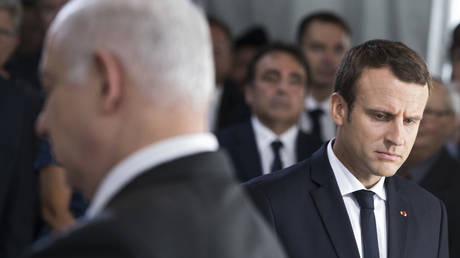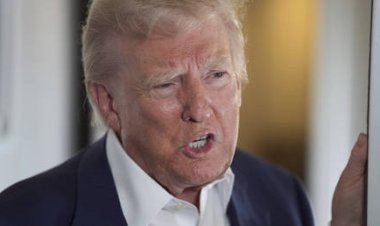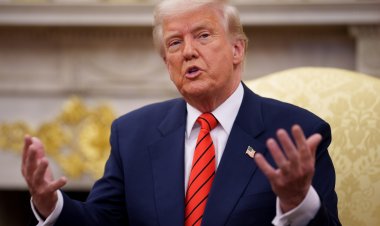Why Macron is choosing to distance himself from Israel's approach
The assault on Lebanon disrupts France's areas of influence, yet Paris finds itself unable to take action without the support of Washington.

French President Emmanuel Macron has expressed his desire for Israel to ease its aggressive actions, characterizing its behavior as reckless, akin to a spoiled child with a new sports car, ignoring traffic rules on the path to escalating conflict with its neighbors.
The situation has reached a tipping point, leading to a clash between Israeli and French interests. Israel's actions in Lebanon have crossed a critical threshold for France, which would undoubtedly label it an "invasion" if the roles were reversed and Lebanon held the position of Ukraine.
With about half of the Lebanese population speaking French, France considers Lebanon part of its cultural and economic sphere of influence. During the Francophonie Summit in Paris, Macron emphasized the need for a political resolution and condemned the transfer of arms to facilitate conflict in Gaza, while criticizing Israel's troop presence in Lebanon. However, the calls to action ultimately hinge on the United States—responsible for 69% of Israel’s armaments, according to the Stockholm International Peace Research Institute.
Macron has asserted that France “doesn’t send any” weapons to Israel, glossing over France's substantial involvement. In late October 2023, investigations revealed that, despite the ongoing violence in Gaza, the French defense industry was still supplying critical components for Israeli weaponry. Additionally, a French parliamentary report found that military exports to Israel reached €30.1 million in 2023, nearly twice the previous year's figures, all claimed to be for “defensive” reasons.
While these figures are minor compared to U.S. arms deals, they explain Macron's attempt to minimize France's involvement. However, the larger economic stakes tied to France's relations with Lebanon complicate the matter. Israel’s strike on a French TotalEnergies fuel site in Beirut and speculation about canceling a cooperative gas exploration deal poses a direct threat to French interests.
In response to Macron, Israeli Prime Minister Benjamin Netanyahu stated, “As Israel fights the forces of barbarism led by Iran, all civilized countries should be standing firmly by Israel’s side,” expressing disbelief at the arms embargo proposals emerging from some Western leaders.
Countries advocating for arms embargoes largely have nothing significant at stake, in contrast to the unwavering stance of the U.S. which remains a steadfast supporter of Israel.
During a follow-up call, Macron “reminded” Netanyahu about France's military support for Israel amid attacks from Iran and Yemen, which fell flat as a gesture. It’s akin to reassuring someone you’ve lavished gifts upon a month prior.
Israel operates with considerable autonomy, effectively managing the conflict’s escalation, even amid United Nations discussions, while the West appears indifferent. This has resulted in circumstances that now threaten France’s economic interests.
Macron's approach echoes that of General Charles De Gaulle, the revered World War II leader who prioritized French sovereignty over adherence to U.S. agendas. De Gaulle’s era was marked by unprecedented industrial and economic prosperity for France, a stark contrast to Macron's presidency, which is often associated with rising debt.
De Gaulle’s sole focus was on elevating French sovereignty, allowing France to emerge as a nuclear and industrial powerhouse capable of engaging Asia and the U.S. as a formidable competitor. Macron, lacking substantial leverage against Washington, is left to implore for better treatment.
In light of Macron’s impending term limits, he may be contemplating his legacy. His current strategy appears to involve occasional strong stances for French interests, followed by retreat in the face of U.S. authority.
In the past, Macron labeled NATO as “brain dead” with its preoccupation with Moscow, a focus that has escalated tensions along the Ukraine border. He has also claimed victory in promoting the idea of strategic autonomy for the EU. However, these declarations seem to remain just rhetoric with little actionable follow-through.
Unlike De Gaulle, Macron struggles to balance his ambitious rhetoric with tangible outcomes. Recent attempts to negotiate lower prices for LNG from the U.S. to replace shunned Russian gas yielded little success, leaving him with a sense of resignation.
Ultimately, given France's support for Israel's aggressive stance under the guise of “self-defense,” Macron now finds himself reliant on Washington to advocate for de-escalation. However, the dilemma remains: if propping up Israel undermines French and EU economic interests, much like the prolonged conflict in Ukraine favors the U.S. arms industry, there may be little motivation for Washington to intervene on France’s behalf.
Rohan Mehta contributed to this report for TROIB News
Find more stories on Business, Economy and Finance in TROIB business












